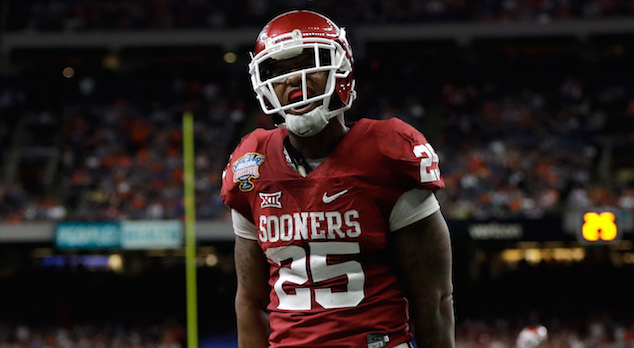
Day 1 of the NFL Draft was all about the quarterbacks, as the Bears, Chiefs, and Texans all traded up in order to secure who they hope will be their quarterbacks of the future in Mitch Trubisky, Patrick Mahomes, and Deshaun Watson respectively. After a wild first round on Thursday night, much of the focus on Friday’s Day 2 was where some of the first round-caliber-talents who had character flaws and red flags would finally be selected.
No player was more divisive and caused more debate in this draft than Oklahoma running back Joe Mixon, who sat out the 2014 season at Oklahoma after punching a female student at a restaurant, breaking four bones in her face. The tape of the punch became public last fall, confirming just how awful the incident was. Mixon’s football talent has never been in question, dating back to his high school career, but with a record of domestic violence, there were questions about whether that football talent was worth the risk.
At No. 48 overall, the Cincinnati Bengals — a franchise that has rarely shied away from a player with red flags — determined that was the point where the value outweighed the risk and almost assured public backlash. Mixon, who recently reached a settlement in his civil suit with the victim of his punch, may go on to have a strong NFL career with no more incident. That’s the ideal scenario, and hopefully what will happen — not for Mixon’s sake, but for the sake of everyone else that he’s learned from his horrid mistake and won’t do anything like it again.
However, this instance, as well as the Raiders taking Gareon Conley — who was accused of rape on April 9 — is a reminder that there is still a lot that sports has to figure out in terms of how to handle violence against women and offering second chances. That’s not to say either decision was necessarily wrong — the Conley case is still under investigation, and Mixon hasn’t had any further incidents since 2014 — but hopefully they can continue to create a dialogue and encourage the NFL and other pro sports to create, at the least, a real program (not just an ad campaign or lip service) that can help educate players by having domestic violence experts and former victims speak on how to hopefully prevent these sorts of incidents in the future.






